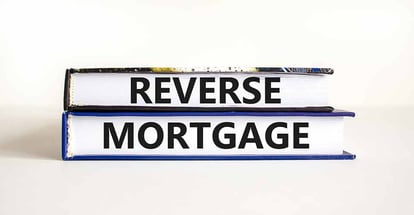Learn About the 40-Year Mortgage Modifications Through the FHA
One major problem with today’s American housing market is the number of homeowners behind on loan payments.
The Federal Housing Administration sympathizes with borrowers, especially those affected by the pandemic. To make their monthly mortgage payments affordable, the administration rolled out a 40-year mortgage modification option.
Before the mortgage modification was announced, there were debates about whether the federal government should back mortgages exceeding 30 years. Most financial experts think it can bridge the massive gap in the mortgage ecosystem.
FHA’s announcement was preceded by a notice issued by HUD (Department of Housing and Urban Development). The DHUD notice spoke about hopes of creating a permanent 40-year mortgage modification program for borrowers.
The modification will suit you if you’re a borrower struggling to repay your mortgage due to Covid-19 economic impacts.
Once eligible, your monthly payments will be reduced and your loan term extended to 40 years. Learn more about the 40-year mortgage modification in this guide.
How FHA’s 40-Year Mortgage Modification Works
FHA, through DHUD, introduced a home retention plan targeting struggling borrowers on April 18. The program allows mortgage lenders to extend borrowers’ loan terms to 40 years. Lenders must put this notice into practice within 90 days of FHA’s press release.
The mortgage modification program is part of the Covid-19 recovering options to cushion homeowners against the devastating impacts of the pandemic.
A permanent version of this relief plan is currently under public review until May 31. It seeks to add the 40-year FHA loan term extension if finalized.
New homeowners won’t be part of the modification program. The plan targets FHA borrowers who are on the brink of losing their homes and facing foreclosure. The FHA aims to use the program to prevent borrowers from defaulting on home loans.
The FHA set a minimum of 25 percent of interest and principal payment reduction. If you meet this requirement, you can qualify for the mortgage modification. You can also enjoy this relief if you are a conventional borrower with a Freddie Mac or Fannie Mae-backed home loan.
The Proposed Loan Modification Rule
The FHA proposed a new rule (currently published in the Federal Register) to solicit comments from the public on a loan modification option.
With this rule, the public has until May 31 to give their opinion on a 40-year loan modification. Once a consensus is reached, the FHA will make the modification plan permanent as part of its loss-mitigation plans.
The loan modification program is among other loss mitigation and home retention actions by the FHA. With the delinquent rate for FHA-backed loans decreasing significantly, more homeowners risk losing their homes. There’s also a high number of borrowers who avoided forbearance.
FHA unveiled recovery options that mortgage servicers should use. The prominent one is the Covid-19 Advance Loan Modification which targets non-occupant and owner-occupant borrowers. It allows the lender to modify one or more loan terms to reduce your monthly payments by at least 25 percent.
Mortgage services must mail the modified loan paperwork to their borrowers. If you choose to accept the documents, you only need to sign and send them back to the servicer.
The 40-Year Mortgage Modification with a Partial Claim Option
FHA paired the temporary version of the 40-year modification with the Covid-19 Recovery partial claim until the permanent version of the modification is completed.
Under the partial claim, your missed payments will be part of a second mortgage (of zero interest). The new loan won’t require any payments until you pay off the primary loan or sell your house.
With this combination, you can qualify for a significant payment reduction and start repaying the home loan to stay on your property.
The partial claim option targets homeowners who fell behind on loan payments due to sudden health costs or income loss. It can help you avoid foreclosure and modify your primary loan for lower, manageable payments.
A 30-year loan modification will likely cost you more if it comes with a high-interest rate. The catch is that you can only ask for a 30-year loan term extension. However, if you’ve had a 30-year mortgage for years, it wouldn’t be wise to consider this option.
FHA’s Covid-19 Loss Mitigation Home Retention program offers diverse options to loan servicers. They target owner-occupant borrowers and contain elements like:
-
Covid-19 Recovery Standalone Partial Claim with a zero-interest and lien against your home.
- Covid-19 Recovery Modification to resolve your outstanding payments if you can’t make them anymore.
Who Qualifies for the 40-Year Mortgage Modification?
FHA requires you to have an existing FHA, USDA, PIH, or VA-backed home loan. Your original mortgage term should also range between 30 (361 months) and 40 years (480 months). You should also be on the brink of defaulting your mortgage for the program to consider your loan.
Since FHA didn’t set any restrictions on the loan amounts, you can qualify for the program with any size of loan taken to purchase a home.
Your lender should guide you through the available options if you’re considering a loan modification. They’ll give you a complete breakdown of everything you’re supposed to do during the loan term.
FHA may consider your loan for the modification if you’re about to miss a payment or already missed a payment, provided you aren’t delinquent.
You have to reach out to your mortgage lender and explain why it’s challenging for you to make the required payments. Be ready to discuss your financial hurdles in detail and give supporting paperwork to support your claim.
Once content with your explanation, the lender may recommend you apply for the 40 year FHA loan modification program and submit proof of expenses and income before and after your challenges.
The paperwork may include statements, monthly bills, pay stubs, and tax returns. Information regarding your assets and savings may also be needed to prove that you’re in a challenging financial position.
Will the 40-Year Mortgage Loan Modification Option Affect Your Credit?
Lenders are obligated to report your mortgage modification to the relevant credit bureaus. Having the loan modification on your credit report may adversely affect your credit.
However, the long-term effects of the modification will be more bearable compared to a foreclosure, which puts you at risk of being homeless.
Since the FHA 40-year mortgage modification program doesn’t require borrowers to be delinquent, missed payments are unlikely to appear in your credit report.
However, if you were late on other existing loans, the missed payments will be reflected in your credit report and lower your credit score.
The good thing with mortgage modifications is that they are designed to help you stay in your home and resume your monthly payments.
They give you a chance to rebuild your credit and raise your credit score over time. This outcome won’t be the case when you lose your home to a foreclosure, which stays on the credit report for up to seven years.

How the 40-Year Mortgage Modification Benefits Borrowers
The 40-year mortgage modification option offered through FHA is a relief to borrowers looking for affordable and longer loan terms. It specifically caters to those who were hit by the pandemic and struggled to raise money for the loan repayments.
Here are some of the ways the option can benefit you as a borrower:
Lower Monthly Payments
You may no longer afford to pay monthly mortgage payments after suffering a devastating financial loss. Losing your income or having too many unavoidable expenses may leave you with less to pay your mortgage.
While you may want to negotiate the loan terms with the lender, they may not be willing to understand your situation.
You will pay fewer monthly payments once you qualify for FHA’s 40-year loan modification plan. That’s because FHA will have demanded the lender stretch your loan over a long period. You won’t risk defaulting on the loan compared to a short-term loan.
The loan modification allows you to prioritize your cash on the most important things while still repaying your loan. It gives you breathing space when you desperately need one but don’t know where to look.
Help You Get Your Finances in Order
If your options for adjusting the loan term are scarce, a 40-year FHA loan modification may help.
If eligible, you can dedicate your finances to making lower mortgage payments and settling your other expenses. Though the option comes with high interest, the lower payments can help you focus on expenses that matter.
Mortgage lenders are usually willing to consider borrowers who put effort into improving their finances. Under this FHA-sponsored program, you can improve your credit by paying off other debts. You also get an opportunity to save a portion of your income while repaying the home loan.
A Chance to Avoid Foreclosure
Foreclosures often leave homeowners devastated, especially if the home was their first property. Some even end up homeless or couch surfing until they find a suitable housing option.
Private mortgage lenders tend to have strict requirements on monthly payments. Failing to make several monthly payments would put you at risk of foreclosure. The lender will have the right to take back the home and sell it.
Before executing a foreclosure, the lender must prove that you can no longer pay the loan. They will use your inability to make monthly repayment as one of the reasons to take back the home. If you fail to reach out to them and negotiate a better loan term, you risk losing the property to foreclosure.
More Favorable Loan Opportunities
The new structure may qualify you for a second loan at zero interest, depending on your financial situation. You have to use the loan to pay off the monthly back payments on your mortgage.
This form of debt relief can help you stay in your home and avoid defaulting.
Fully Amortizing
One of FHA’s 40-year mortgage perks is that it is fully amortizing. This means that every monthly mortgage payment made contributes to some amount of your loan principal and interest. You get to reduce the overall loan balance and improve your credit score in the long run.
Even with a fixed rate, your principal and interest payment and rate will remain the same over the extended loan period.
Your lender will send you a mortgage statement showing the paid debt and balance.
What Happens After You Get Approved for the 40-Year FHA Loan Modification?
Once you get approved for an FHA-sponsored 40-year mortgage modification, your risk of facing a foreclosure reduces.
You will undergo a trial modification to demonstrate that you’re willing to make the required monthly payments. The trial period may last a few months (most likely 90 days, as with most mortgage modifications).
You risk losing your approval for the modification if you miss any payment during the trial period. The lender will share this information with credit bureaus, and as a result, you risk ending up with poor credit. Furthermore, FHA doesn’t enroll delinquent borrowers in the program.
You may qualify for a permanent loan modification if you make timely mortgage payments within the set trial period.
The FHA and your lender will send you a loan modification agreement that entitles you to lower monthly payments and an extended loan term of 40 years.
For the agreement to be legally binding, you have to sign it and return the paperwork to your mortgage lender.
Through your lender or mortgage servicer, the FHA may require other documents (like a homeowners insurance certificate) to approve the permanent loan modification.
Once the loan modification process is complete, expect a significant drop in your monthly mortgage payments. Your payments will largely depend on the kind of changes the program introduced to your home loan.
Applying for the 40-Year Loan Modification
The 40-year FHA loan modification is part of the loss mitigation approaches taken by the federal government to give mortgage borrowers a flexible payment plan and restore the American economy.
Contact your servicer or lender’s loss mitigation department and inquire about the mitigation. You can find their contact details on their official website and on your mortgage statement.
The application should include a filled questionnaire with your property information and mortgage details. You should also submit your tax returns, income and expense worksheet, a hardship statement, and bank statements.
Depending on your case, the lender or servicer may ask you some questions and ask for additional paperwork to back the application.
The application process may last a few days, depending on your loan situation and terms. Therefore, you should be patient and cooperative throughout the process for the best outcomes.
Expect some back and forth between you and the lender or servicer to ensure accurate information.
Should You Hire a Mortgage Modification Expert to Help You?
The only person you may hire in the loan mortgage modification process is a lawyer. Your lawyer will help you navigate the legal complexities of the program and advise you on whether signing up for the modification is worth the risk.
FHA has a long list of terms and conditions every borrower must adhere to when signing up for the mortgage modification program.
Some of the vocabulary featured in the paperwork may be complex for someone without legal background or training. Having a lawyer interpret the document will ensure that you agree to terms that favor you, like a mortgage borrower.
Loan modification experts charge a lot of fees for their services, including tasks you can perform by yourself. Some are even scammers who will complicate the process for you and reduce your chances of getting into the FHA-sponsored program.
When you handle the application by yourself, you can promptly respond to any requests or inquiries made by the lender.
The Bottom Line
While having a home loan for 40 years may seem like a long time, it can help you keep your home. An FHA-sponsored mortgage modification program will help you enjoy low loan payments and give you a chance to fix your financial hurdles. You will also be better positioned to improve your credit and quality for more home financing.
Though the program is in its initial stages, it aims to offer mortgage borrowers relief from their payment plans. You could benefit more from the loan modification if the pandemic had devastating effects on your finances.
With over 50 years of mortgage industry experience, we are here to help you achieve the American dream of owning a home. We strive to provide the best education before, during, and after you buy a home. Our advice is based on experience with Phil Ganz and Team closing over One billion dollars and helping countless families.

About Author - Phil Ganz
Phil Ganz has over 20+ years of experience in the residential financing space. With over a billion dollars of funded loans, Phil helps homebuyers configure the perfect mortgage plan. Whether it's your first home, a complex multiple-property purchase, or anything in between, Phil has the experience to help you achieve your goals.


 By
By  Edited by
Edited by 






